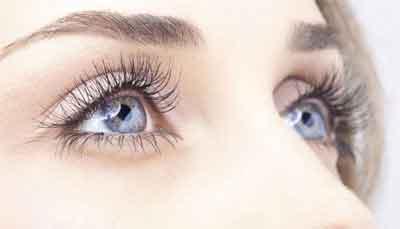- Home
- Editorial
- News
- Practice Guidelines
- Anesthesiology Guidelines
- Cancer Guidelines
- Cardiac Sciences Guidelines
- Critical Care Guidelines
- Dentistry Guidelines
- Dermatology Guidelines
- Diabetes and Endo Guidelines
- Diagnostics Guidelines
- ENT Guidelines
- Featured Practice Guidelines
- Gastroenterology Guidelines
- Geriatrics Guidelines
- Medicine Guidelines
- Nephrology Guidelines
- Neurosciences Guidelines
- Obs and Gynae Guidelines
- Ophthalmology Guidelines
- Orthopaedics Guidelines
- Paediatrics Guidelines
- Psychiatry Guidelines
- Pulmonology Guidelines
- Radiology Guidelines
- Surgery Guidelines
- Urology Guidelines
How to encounter winter Eye Blues-check it out

- If you spend time in heated locations, use a humidifier to add some moisture back into the air. Drink lots of fluids. Keeping your body hydrated will help maintain moisture in your eyes.
- Don't blow heat directly onto your face, because this can dry up moisture in your eyes. In your car, direct heat vents towards your lower body.
- Avoid cigarette smoke. Smoke can increase eye irritation;
- When outdoors, wear eye protection or a hat with a visor to keep particles and wind from getting into your eyes. Be sure to retain eye moisture when outside, especially when engaging in activities where air moves quickly across your eyes such as snowboarding, skiing, and snowmobiling;
- If you wear contact lenses, be sure to keep them clean. In cold weather, your eyes could dry even more with contacts. Always wearing clean contacts reduces the risk of infection and itching, Locy said.
- Purchase over-the-counter artificial tears such as Refresh and Systane. These products supplement our natural tears and can be used as often as six times a day. Some preservative-free varieties can be used even more often. Apply a drop of artificial tears before you head out into the cold and wind to help keep your eyes comfortable;
- And talk to your doctor. Occasional bouts of dry eyes can eventually progress into dry eye disease.
2.Watery eyes and cold weather
Watering eyes is common as we step outside into colder winter temperatures. When cold air causes more evaporation, our eyes are left with a thinner cushion of tears that protect the sensitive surface cells. This condition can trigger a reflex that tells the lacrimal gland (the eye gland that secretes an aqueous layer of tear film) to produce extra tears. The result is that tears can flood our eyes and spill onto our cheeks.
Because the tearing, in this case, is actually due to evaporation, treatment for watery eyes is similar to dry eyes.
3.Snow blindness
Photokeratitis is the medical term for snow blindness, which is caused by damage to the surface cells of the cornea from ultraviolet (UV) light. Although we are exposed to UV light all year, reflections from snow intensify this exposure. That’s why photokeratitis is usually seen in winter. The cornea cells have denser nerve endings than anywhere else on your body, making snow blindness extremely painful. The damage, while often temporary, can cause blurry vision. UV light can damage the retina in the back of the eye as well.
The best way to prevent snow blindness is to avoid prolonged UV exposure. All sunglasses and snow goggles sold in the United States are required to have sufficient filters that block both UVA and UVB rays. Wearing adequate protection for snow sports is extremely important.
Treating snow blindness involves rest with eyes closed for 12 to 48 hours. Your ophthalmologist can provide symptomatic and pain relief if needed.
4.Eyes at altitude
Travelling at higher elevations exposes our eyes to even colder temperatures and less protection from UV light. Hence, dry eyes and the risk of snow blindness increase the higher you go. If you enjoy Colorado mountain activities like skiing, snowboarding, sledging, snowshoeing and snowmobiling, taking extra precautions to protect your eyes is vital.

Disclaimer: This site is primarily intended for healthcare professionals. Any content/information on this website does not replace the advice of medical and/or health professionals and should not be construed as medical/diagnostic advice/endorsement or prescription. Use of this site is subject to our terms of use, privacy policy, advertisement policy. © 2020 Minerva Medical Treatment Pvt Ltd